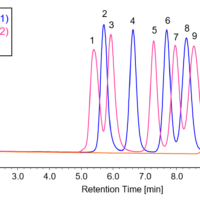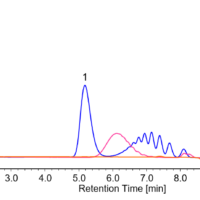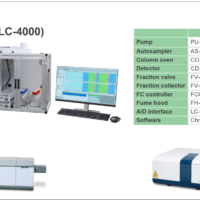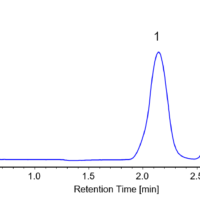Introduction
Semi-micro analysis has the advantage in cutting cost by reducing the consumption of mobile phase. Columns with smaller particle sizes and reduced column dimensions are ideal for rapid high performance analysis and provide economical and ecological advantages in reducing the consumption of organic solvent in GPC analysis.
Using these more efficient columns together with a faster response detector, which can detect the sharper eluted peaks, offers a shorter measurement time. JASCO’s refractive index detector (RI detector) with small flow cell volume is optimized for high-speed data acquisition for use in semi-micro scale analysis using columns with high performance packing material with smaller particles.
This article shows polystyrene oligomer analysis using a GPC column designed for high-performance analysis. Analysis using the JASCO’s RHPLC system results in a 30% solvent saving compared to conventional separations.
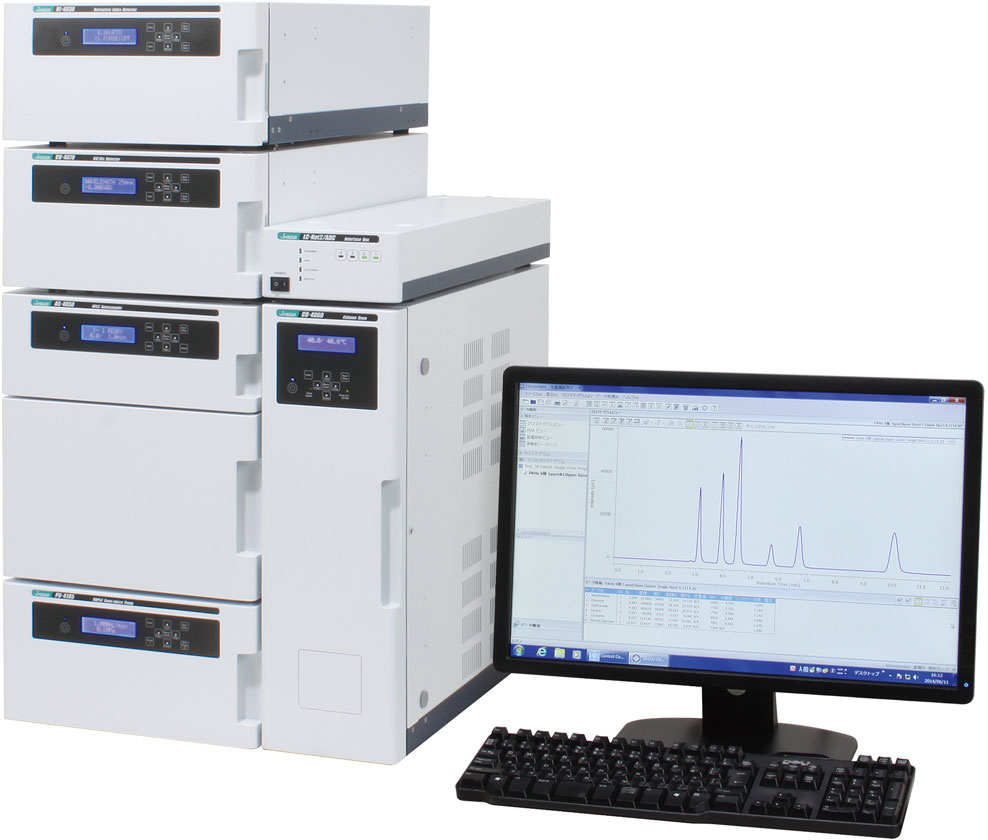
LC-4000 GPC system
Experimental
Conditions
Column: Shodex KF-401HQ (4.6 mmI.D. x 250 mmL, 3 µm)
Eluent: THF (with stabilizer)
Flow rate: 0.3 mL/min.
Column temp.: 25ºC
Injection volume: 2 µL
Sample: 0.2(w/v)% Polystyrene oligomer (Mw = 500) in eluent
Keywords
semi-micro scale, high performance packing material, GPC, Refractive index detector, polystyrene oligomer, RHPLC
Results
Figure 1 shows the chromatograms of polystyrene oligomer measured with 2 types of RI detector (for semi-micro scale and conventional analytical scale). RI detector for semi-micro separations provide chromatograms with sharper peaks and better peak resolution.
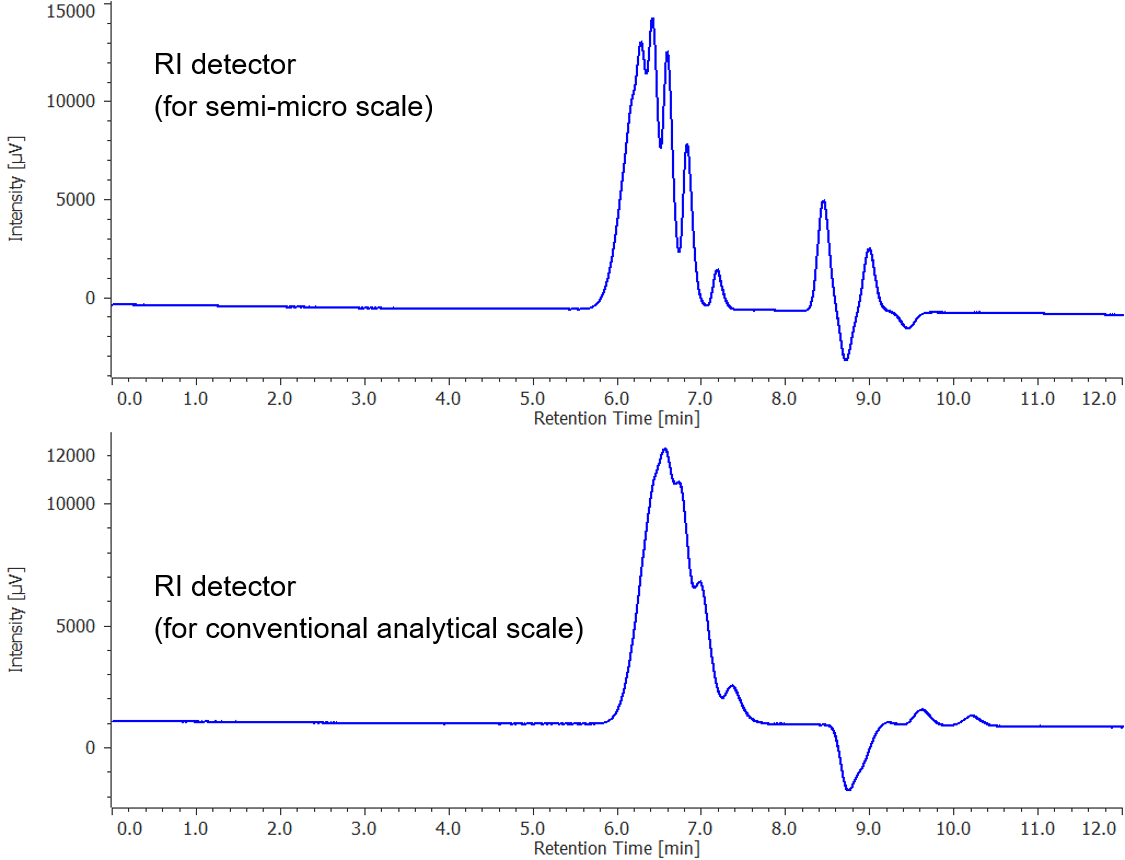
Figure 1. Chromatograms of polystylene oligomer for comparison of RI detector type
Figure 2 displays the chromatograms of polystyrene oligomers using RI detector with response 0.3 and 3 seconds illustrating that a faster response provides better peak resolution.
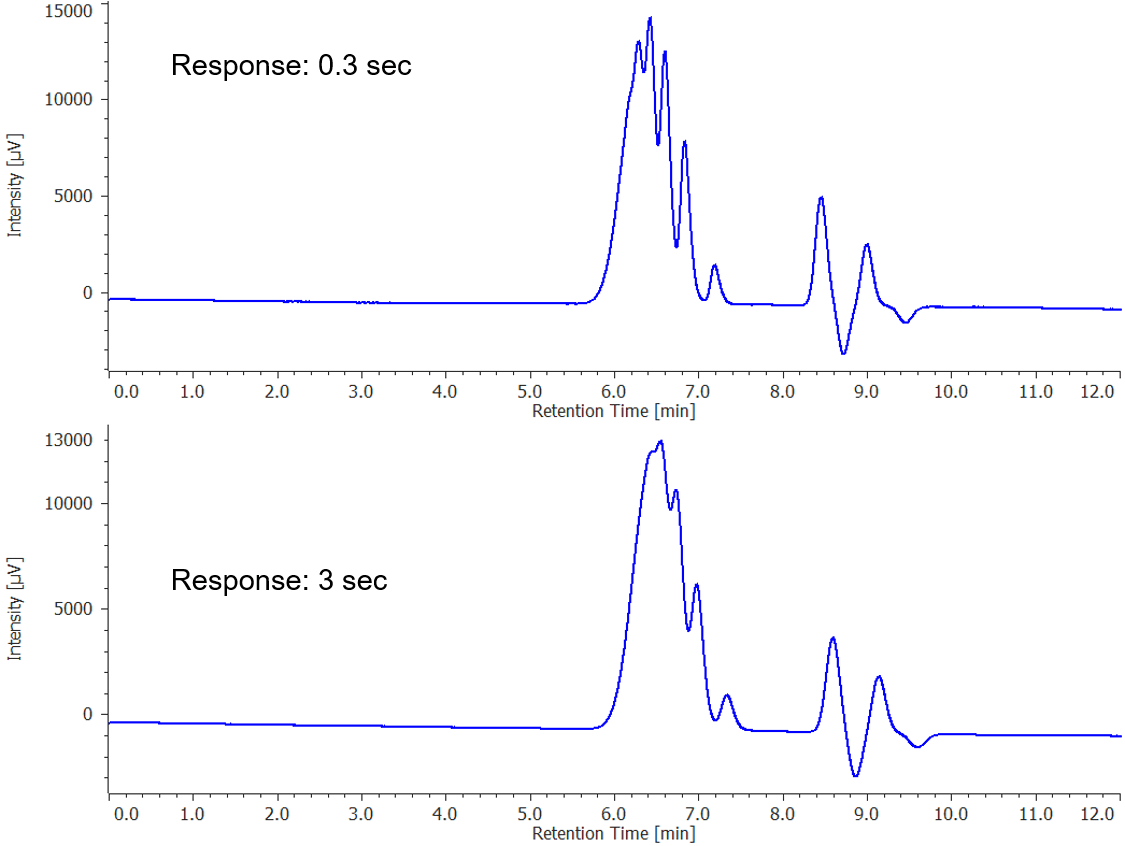
Figure 2. Chromatograms of polystyrene oligomer for comparison of response

